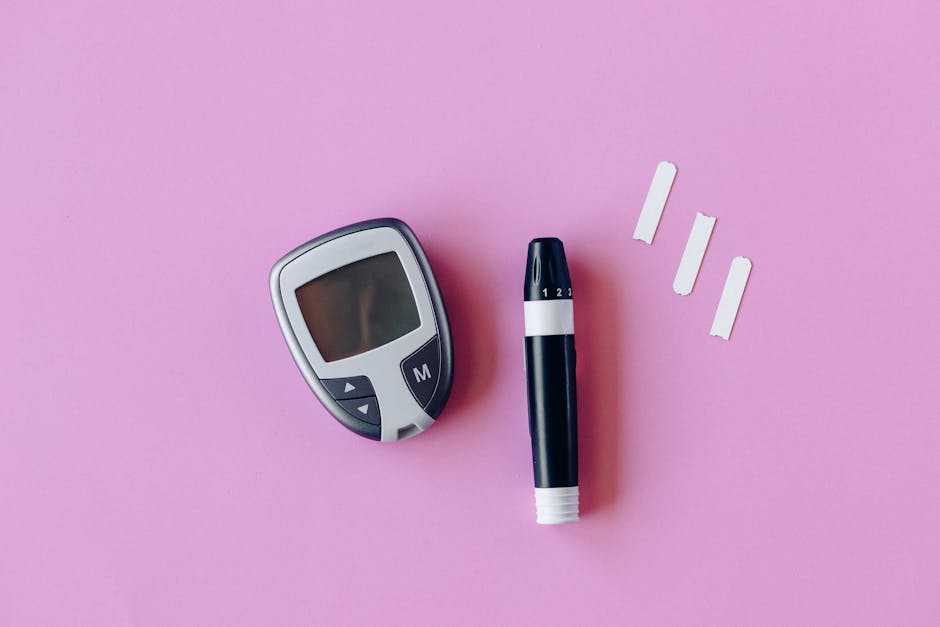Maintaining sobriety is a deeply personal journey marked by constant choices, mental resilience, and a continuous drive for self-improvement. While many methods can support this lifestyle change, one of the most effective tools in today’s recovery landscape is the sobriety counter. For those in recovery, staying accountable and celebrating each milestone can significantly strengthen long-term commitment. A sobriety counter serves as both a digital and emotional checkpoint, reinforcing progress in a visible, measurable way.
Whether someone is newly sober or has years of recovery under their belt, the act of tracking each day adds clarity to the path ahead. This article explores the practical use of sobriety counters, how they help individuals stay committed, and why recognizing progress through measurable tools is essential for building confidence and resilience.
Why Accountability Matters in Recovery
The road to recovery is rarely linear. Setbacks and challenges can occur, even when someone is highly motivated. Accountability plays a critical role in reducing the likelihood of relapse and increasing the chances of sustained sobriety. When individuals have something or someone to answer to—be it a support group, a sponsor, or a sobriety counter—the weight of personal responsibility becomes more concrete.
Accountability does not mean punishment or judgment. Instead, it reflects ownership of one’s choices. A sobriety counter supports this principle by providing a real-time record of progress. It offers a factual account of how many days, weeks, or months a person has maintained their commitment. This objectivity helps counteract moments of doubt or emotional distress, offering a stable reference point when internal motivation wavers.
Moreover, seeing the number of sober days increase can provide powerful psychological reinforcement. When individuals are reminded of how far they’ve come, they are less likely to want to reset the clock. A visible counter can be a strong deterrent against the temptation to relapse.
The Psychology Behind Milestones and Motivation
Every human being is driven by rewards and goals. In recovery, celebrating milestones serves as a reminder that progress is possible and worth acknowledging. A sobriety counter leverages this basic psychological principle. By visually marking each achievement—be it the first 24 hours or the 1000th day sober—it gives the individual a moment of pride and validation.
These celebrations don’t need to be elaborate. Often, the simple acknowledgment of reaching another day is enough. Many recovery communities emphasize the power of “one day at a time,” and a sobriety counter allows that philosophy to be put into practice. It takes the overwhelming goal of lifelong sobriety and breaks it down into manageable, daily wins.
The act of tracking time also shifts focus from what’s being given up (such as alcohol or drugs) to what’s being gained—consistency, clarity, and control. As each day accumulates, the counter provides tangible evidence of change, progress, and perseverance. This sense of forward motion is critical in keeping motivation alive, especially during difficult periods when progress feels intangible.
How a Sobriety Counter Enhances Daily Structure
Consistency is a key component of successful recovery. Establishing routines and predictable patterns helps the brain adapt to life without substance use. A sobriety counter contributes to this structure by creating a fixed point in each day that’s dedicated to reflection and review.
Checking the counter becomes part of a routine. Some people start their day by looking at it, grounding themselves in their goals before moving forward. Others may use it as a nighttime ritual to affirm that they’ve made it through another day. Either way, the act of acknowledging progress brings intentionality into daily living.
Furthermore, when paired with journaling or support group check-ins, a sobriety counter can become a cornerstone of a recovery toolkit. It ties abstract goals to concrete data. Over time, individuals can reflect on their counters alongside their emotions and experiences, noticing patterns and preparing for challenges more effectively.
This structured approach is particularly valuable for those who respond well to visual feedback. Much like fitness trackers or budget apps, a sobriety counter presents a quantifiable metric that highlights improvement and promotes consistency.
Choosing the Right Sobriety Counter
There is no one-size-fits-all solution when it comes to sobriety tracking. The right sobriety counter depends on personal preferences, lifestyle, and goals. Some individuals prefer digital apps that offer custom milestones, inspirational messages, or integration with recovery communities. Others may choose analog methods such as a physical calendar, sobriety chips, or journal entries.
Mobile apps have become increasingly popular because of their ease of use and accessibility. Many feature customizable displays that show the exact number of days sober, the time saved, or even the money not spent on substances. For people who appreciate data-driven insights, these digital counters offer a deeper understanding of their journey.
On the other hand, physical tools offer a tactile, tangible connection to progress. Carrying a sobriety token in a wallet or seeing a sticker-filled calendar can evoke strong emotions and reinforce commitment in a different way. The best counter is the one that resonates with the individual and encourages them to keep going, even on tough days.
The effectiveness of any sobriety counter, however, relies on honesty and regular interaction. Like any accountability tool, it must be updated and respected. Skipping updates or using the counter only sporadically may reduce its psychological impact.
Addressing Relapse and Resetting the Counter
Relapse is a sensitive and often stigmatized topic in recovery, yet it remains a reality for many. A sobriety counter can be a double-edged sword in this context. For some, resetting the counter after a relapse can be disheartening. It may feel like erasing all the progress that came before.
However, it’s essential to reframe what the counter represents. Rather than viewing it as a measure of perfection, it should be seen as a tool for reflection. If a relapse occurs, resetting the counter does not invalidate the effort already made—it simply marks the beginning of a new chapter. Many recovery advocates encourage a compassionate approach to relapse, emphasizing that each attempt strengthens the overall journey.
In this way, the sobriety counter can also become a source of resilience. By acknowledging the setback and recommitting to sobriety, individuals demonstrate emotional strength and renewed dedication. They prove that the process is ongoing and that perfection is not the goal—progress is.
Encouraging Support Through Shared Tracking
While sobriety is an individual decision, recovery often benefits from community. Many people in recovery choose to share their sobriety counters with others, whether through social media, support groups, or accountability partnerships. This shared tracking fosters transparency and mutual encouragement.
When a sobriety counter becomes visible to others, it amplifies the sense of accountability. Knowing that friends, family, or fellow group members are aware of one’s progress can provide a valuable support system. Celebrating milestones together also creates meaningful moments of connection. For example, marking a year of sobriety in a group setting offers not just validation for the individual but hope for others.
At the same time, it’s important to protect privacy and set personal boundaries. Not everyone feels comfortable making their recovery public, and that choice should be respected. The value of a sobriety counter lies in how it supports the individual, whether or not others are involved.
Long-Term Benefits of Using a Sobriety Counter
As days turn into weeks, and weeks into years, the long-term use of a sobriety counter becomes a record of transformation. It captures not only the passage of time but the resilience, effort, and growth that define the recovery process. Looking back at early milestones often evokes feelings of gratitude and pride.
More importantly, it helps prevent complacency. Even after several years, a visible reminder of the commitment made can keep sobriety front and center. Recovery is a lifelong process, and tools like sobriety counters ensure that progress is never taken for granted.
In addition, these counters can play a role in inspiring others. Those newer to sobriety often look up to individuals who have accumulated substantial time without relapse. The counter serves as proof that long-term recovery is achievable, offering hope and motivation to those just beginning the journey.
Some individuals also use their counters as a basis for mentorship. By sharing their numbers and stories, they create a sense of legacy and continuity within recovery communities. This ongoing involvement enriches their own sobriety while contributing to the healing of others.
Making Sobriety a Daily Practice
True recovery is not just about abstaining from substances—it’s about building a life that no longer needs them. A sobriety counter supports this transformation by making the passage of sober time part of everyday awareness. It becomes a quiet affirmation of self-worth and strength, reaffirming that each day matters.
This daily awareness encourages mindfulness and reflection. It pushes individuals to stay present, manage stress constructively, and appreciate the benefits of sobriety. Over time, these small practices compound, resulting in more confidence, better mental health, and healthier relationships.
While external tools cannot replace inner work, they can facilitate it. A sobriety counter is not a cure-all but a companion. It walks beside the individual, marking every step forward and quietly cheering them on.
Final Thoughts on Using a Sobriety Counter
Recovery is not defined by a single moment of change but by the daily choices that follow. A sobriety counter serves as a subtle yet powerful reminder of those choices. By promoting accountability, reinforcing routine, and celebrating milestones, it helps individuals stay engaged in their recovery and proud of their progress.
The journey may not always be smooth, but tools like sobriety counters provide stability and clarity. They transform abstract goals into tangible victories and offer a sense of structure when everything else feels uncertain. Whether someone is on day one or day one thousand, watching that number grow is a testament to courage, commitment, and transformation.
By integrating a sobriety counter into daily life, individuals not only track time but also celebrate growth. They develop a deeper understanding of their journey and a stronger connection to their purpose. In the world of recovery, such clarity is not just helpful—it’s life-changing.


